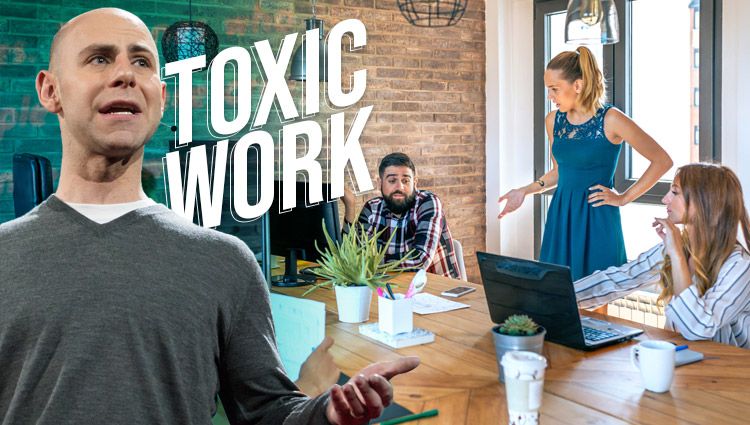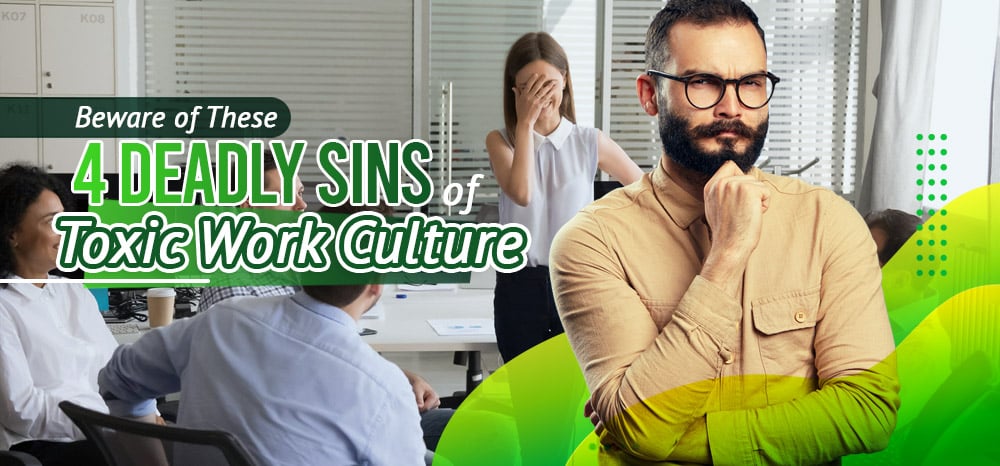If you think hiring the best employees is the hardest part, think again.
Research shows that more than hiring, retaining your best workers is actually more challenging. Aside from proper compensation, you also need to ensure a healthy workplace culture.
Otherwise, you’ll find yourself posting on job boards often.
Fortunately, Wharton professor and best-selling author Adam Grant offered a simple framework to help you define and prevent a toxic company culture.
Difficulties in Defining “Toxic” Culture

Let’s face it. Everyone has their own definition of “toxic” work.
The term has been thrown around loosely to the point where people use it to describe anything that doesn’t appeal to them.
For instance, workers who aren’t keen on meeting deadlines can describe weekly work tasks as burdensome and toxic.
Meanwhile, managers who are not equipped for handling employee conflicts and concerns may describe weekly run-ins as draining and toxic.
You get the picture.
Hence, to resolve this dilemma, Grant came up with the 4Rs.
Adam Grant’s Definition of Toxic Work

Grant offered a simple definition: A toxic company is always just about a lack of balance.
Companies become toxic when they lose sight of their priorities. For instance, this happens when organisations tend to favour results instead of the process – or vice versa.
In other words, when companies lean way too far towards one side, the problem arises.
4Rs: Four Deadly Sins of Toxic Workplace Culture
Adam Grant offered a thorough explanation of toxicity by introducing competing values: relationships, results, rules, and risks.
To understand how these values interplay and may lead to a toxic workplace, let’s inspect them closely:
Relationships

Most business owners and leaders want what’s best for the company and their people. I mean, who wouldn’t?
However, intentions alone are not enough. Cultivating a healthy workplace culture often involves declining offers, setting boundaries, and saying no.
According to Grant, if you’re afraid of stepping on toes or upsetting people, this may result in a culture without accountability. People will inevitably mess up without worrying about getting reprimanded.
Simply put, if you focus too much on relationships, the eventual outcome would be mediocrity. And yes, toxicity.
Results

Conversely, if you focus on results alone, you’ll get a company that lacks compassion and value for its people.
In this scenario, organisations care more about output rather than their staff. Worse, companies that prioritise outcomes are more likely to throw human decency under the bus in the name of productivity.
Undoubtedly, this variety of toxicity is the worst and deadliest.
It would inevitably result in disrespect, unethical decisions, and abuse in the workplace.
Rules

Meanwhile, there are companies that value rules more than anything.
For them, relationships and results would follow once clear rules and guidelines are in place -and upheld.
However, Grant emphasized that every business must strive to balance the stability of rules against the rewards of risks.
Very few things are ever black and white, especially in the workplace. Hence, straying too far toward rules may result in a bureaucracy that ends up killing dissent, ideas, and creativity.
Left unchecked, this can lead to a culture of suspicion, hostility, and toxicity.
Risk

However, foregoing all rules can also result in chaos. While rules and bureaucracy may be constricting, too much freedom can lead to anarchy.
When everyone is given the freedom to do their work in whatever way they want, you might end up with employees who never learn valuable lessons and worse, work without purpose.
The best company culture, as it turns out, is one that is balanced. You just need to see what types of toxicity you should look out for before it’s too late.
Fortunately, you can get help.
Remote Staff has been assisting Australian SMEs and entrepreneurs like you with the help of our remote workers from the Philippines for the last 15 years and counting. We also provide onboarding tips to help you and your new hires succeed in a remote workplace, so you can focus on cultivating a healthier company culture.
Call us today or schedule a call back and let’s get started.
Serena has been working remotely and writing content for the better part of the last decade. To date, she's written for Pepper.ph and Mabuhay Magazine, among others, and has churned out more than a thousand articles on everything from The Basics of Stock Market Investing to How to Make Milk Tea-Flavored Taho at home. Hermits, aspiring hermits, and non-hermits with interesting project propositions may email her at serena.estrella10@gmail.com.





















